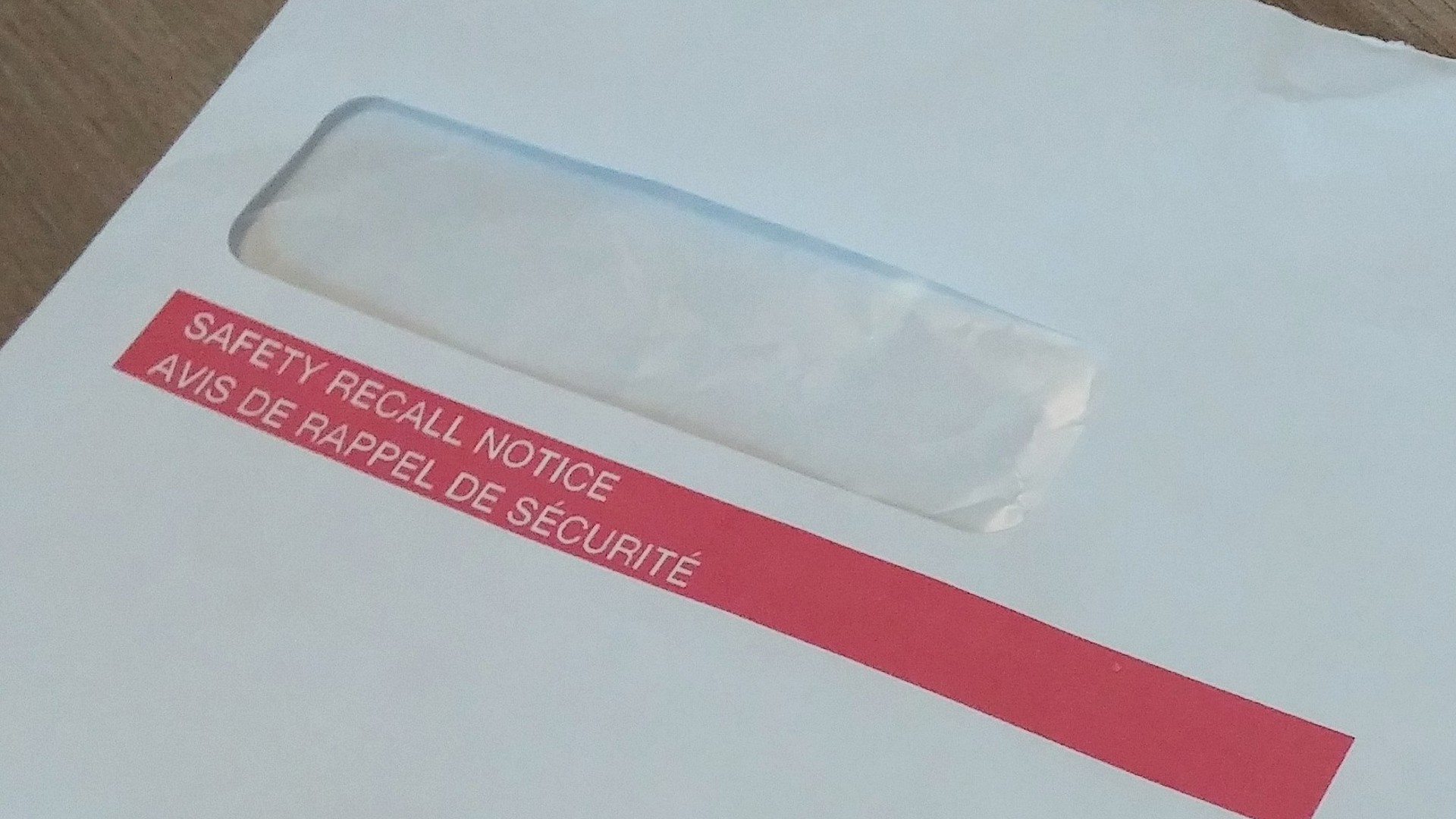A new Act has just received Royal Assent that gives the federal government more power to order vehicle recalls, verify compliance, and make sure that consumers and dealers don't bear the costs associated with a recall of their vehicle. It could also help bring autonomous vehicles to Canadian roads.
Prior to Bill S-2, the Strengthening Motor Vehicle Safety for Canadians Act, only automobile manufacturers could order a safety-related recall. While they still can order recalls on their own, if the Minister of Transport feels that an automaker has failed to do so, the Minister may make their own order.
The Act also gives the Minister and Transport Canada the ability to order and conduct tests and studies on vehicles and equipment in order to investigate any defects as well as verify compliance with the Motor Vehicle Safety Act. The Minister can order collision investigators to look into any motor vehicle collision.
In addition to the ability to recall, the Minister can now also make sure that automakers pay for the repairs, making sure that consumers don't have to pay to make their recalled vehicle safe. The recall order also applies to cars that haven't been sold. The Minister can force automakers to repair the vehicles before selling them. An amendment forces automakers to compensate dealers for recalled cars that haven't been sold.
Transport Canada now gets the ability to perform more in-depth vehicle inspections when safety is in question. The agency can also impose fines of up to $200,000 per violation for automakers breaking the Motor Vehicle Safety Act.
The new legislation has an addition that could make it easier for future vehicle technologies like autonomous driving. Section 13 of the Act adds that the Minister can issue an order effective for up to three years that modifies the Motor Vehicle Safety Act if the Minister feels it is in the best interests of the public. That includes "to promote innovation or for reasons of safety." With autonomous vehicles meeting those criteria, this could lead to temporary changes that allow new self-driving tech sooner, while legislation catches up.

